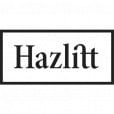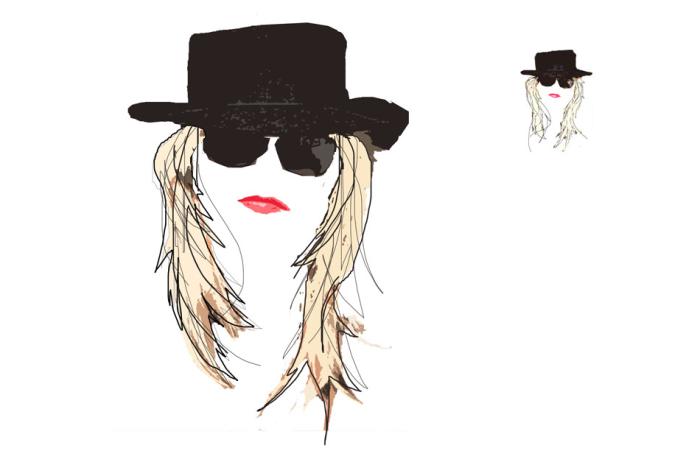Chris Cleave's latest novel, Gold, features two elite cyclists battling for the last spot on the Olympic team. His previous, Little Bee, reached number one on the New York Times bestseller list. According to his bio, Cleave has been "a barman, a long-distance sailor and teacher of marine navigation, an internet pioneer and a journalist." He's making two appearance at this year's IFOA: this evening, as part of Doubleday Canada's 75th anniversary event, and tomorrow, reading alongside Ekiwah Adler-Beléndez, Pasha Malla, Robin Sloan and Claire Vaye Watkins.
First, second or third person?
Hard to have a favourite, really. The third person is a bit of a know-it-all but I forgive him & so do you.
Nabokov had lepidopterology, Hemingway had the hunt. Do you have an extra-lingual obsession?
Absolutely. I keep a photographic record of small moments in the day that make me smile. These are typically (a) objects that are nicer than they needed to be, or (b) items that drift free from their context when isolated in a photo. For example, in the first category, here is a set of particularly perky urinals I spotted in Denver, Colorado:

Which writers do you wish were more widely read?
Virginia Woolf. Tove Jansson. Susan Orlean.
Which rules of writing do you think should be ignored?
Rules are there to be obeyed, soldier. No exceptions.
Beg, borrow and steal—are there any books you go to when you’re stuck?
Honestly, no. One, I don’t get stuck, and two, if I did, I’d be ashamed to cling to anyone else’s work to get me out of the mess. I’ve often heard it said that artists borrow from each other, but I really don’t think that’s true. Not for the good ones.
The books business is changing. What elements of the game are you happy to see fall to the wayside? What gives you hope?
It’s true that the books business is changing, but that doesn’t affect me as a storyteller. For me, it’s still the pursuit of an irresistible story and an elegant line to trace through it. I don’t concentrate very hard on all the format changes and the shifting retail situation. That’s not my job. My world is still one of writers, pushing at their limit to produce their best work, and readers, as excited as they ever were about stories that move them.
Do you think it's fair to call writing a game? (Some writers, mostly men for example, have likened it to boxing.) Or would you prefer another metaphor?
It’s only a game if you believe there are rules. For me a better metaphor is a journey into a territory that is unexplored, and the extent of which is unknown. You set off with youth and bravery and a backpack full of supplies, but eventually all these resources run out and you find yourself alone in a wilderness with no clear way back home. Then we see what you’re made of.
Can you give any #protips on delivering a good reading performance?
Absolutely. I think the most important thing is that you should enjoy the connection with the audience. God knows writing is solitary enough for the most part. A reading—and especially the Q&A that follows—should be an adventure for you and for the audience, different every time. If you don’t enjoy it, don’t go on tour—it’s not compulsory.
Look at Cormac McCarthy, for example. An undisputed great, and has never done a book tour in his life to my knowledge. So if you do choose to tour, do it with grace and love and unstinting energy. Strive to learn & get better at being you in public. Remember that every single person in the crowd is just as interesting as you, truth be told, and it’s largely down to blind fortune that you’re the one holding the mic. The audience is doing you an honour by being there. Some of them will have driven for hours to make it. And for most people, the $20 or $30 cost of your book is a big deal and they have no idea you only see 8 percent of that. So give them a little bit of your true self in return. They will reciprocate, and you will make some good friends in the signing line over the years.
Do you have any personal tips for surviving a literary festival?
Ha ha! The Southern Ocean in winter is something you survive. An abusive childhood is something you survive. A literary festival is something where you wear your nicest clothes while people give you wine and ask you politely to talk about yourself.
What's your ultimate past, present, or imaginary IFOA high point?
My best time at IFOA was a few years back when I was an unknown novelist and IFOA very kindly let me be the warm-up guy for Bret Easton Ellis. It meant that I got to read from my book in front of his crowd, which must have been about 500 people. It was terrifically exciting for me. I was very nervous but the audience couldn’t have been kinder or more encouraging—it was (I have subsequently learned) a typical big hearted Canadian crowd. I was also pretty nervous about meeting Bret—but he was fantastic. It’s moving—and rare—to meet your literary heroes and to discover that they do not disappoint.
What’s the strangest thing that you’ve seen happen at a literary festival or reading?
Well, there was a fist fight between audience members at a library show I did in the north of England a few years back. I was reading from Little Bee, a novel about a refugee, and it turned out that people in the crowd had strongly-held opposing views on the politics of immigration and asylum. Never seen a library gig kick off like that, before or since.
Which dead writer would you most like to sit on a festival round table with, and what would you discuss?
Are we assuming that the dead writer would be somehow restored to life and reincorporated for the occasion? Otherwise I guess I’d have to choose someone who’d been dead a long time—you’d want those bones to have been picked fairly clean, just on aesthetic and olfactory grounds. I suppose I’d choose Zola and we’d talk about social and political engagement in novels. I can’t imagine Zola would be particularly thrilled, though. I can imagine him tweeting “Oh FFS just been awakened from eternal rest to talk with Cleave at IFOA. Still, the audience were good at least.”
On a scale of one to Proust, how would you rate your experience answering this questionnaire?
Swann-and-a-half.





